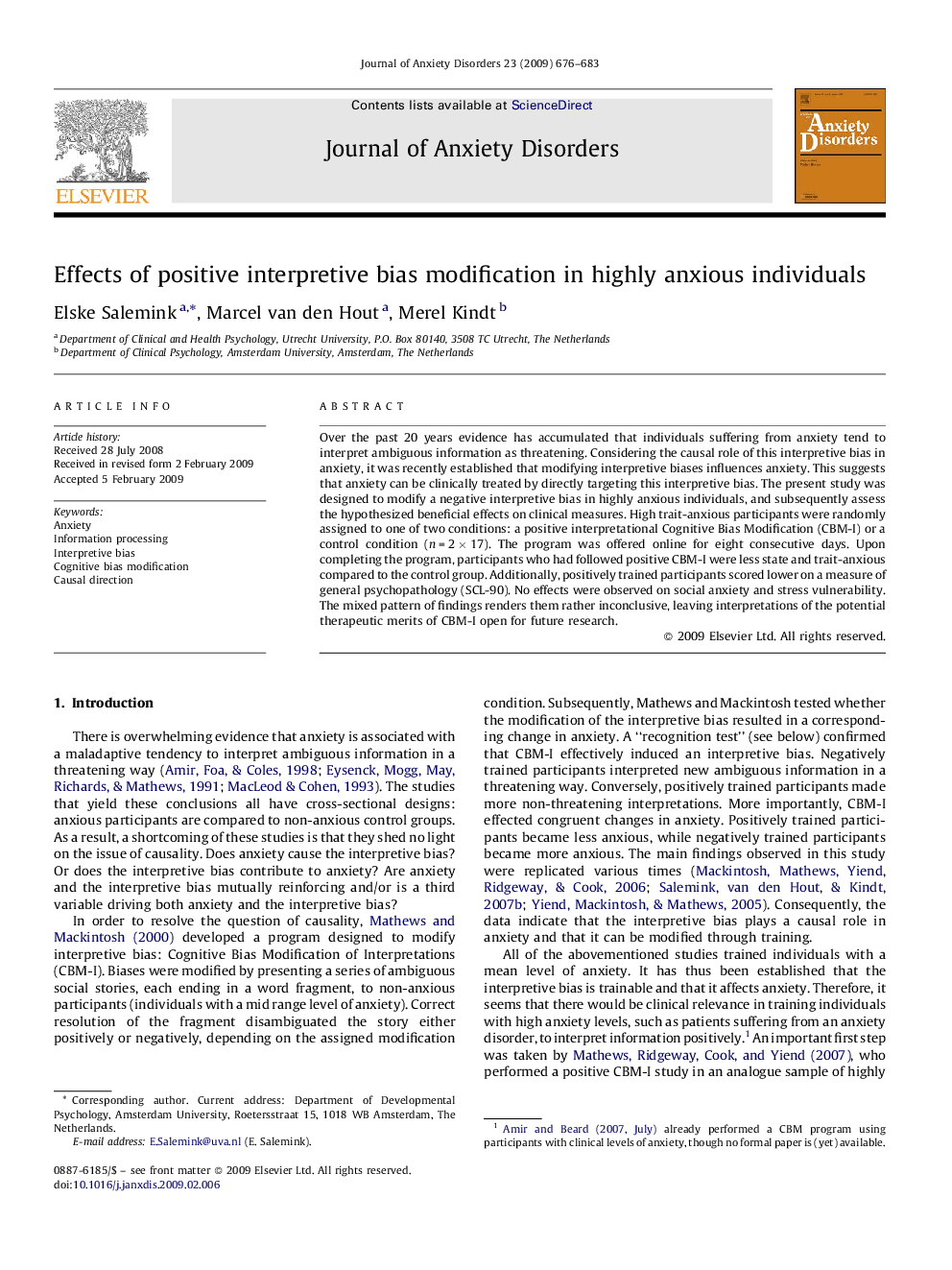| Article ID | Journal | Published Year | Pages | File Type |
|---|---|---|---|---|
| 909694 | Journal of Anxiety Disorders | 2009 | 8 Pages |
Over the past 20 years evidence has accumulated that individuals suffering from anxiety tend to interpret ambiguous information as threatening. Considering the causal role of this interpretive bias in anxiety, it was recently established that modifying interpretive biases influences anxiety. This suggests that anxiety can be clinically treated by directly targeting this interpretive bias. The present study was designed to modify a negative interpretive bias in highly anxious individuals, and subsequently assess the hypothesized beneficial effects on clinical measures. High trait-anxious participants were randomly assigned to one of two conditions: a positive interpretational Cognitive Bias Modification (CBM-I) or a control condition (n = 2 × 17). The program was offered online for eight consecutive days. Upon completing the program, participants who had followed positive CBM-I were less state and trait-anxious compared to the control group. Additionally, positively trained participants scored lower on a measure of general psychopathology (SCL-90). No effects were observed on social anxiety and stress vulnerability. The mixed pattern of findings renders them rather inconclusive, leaving interpretations of the potential therapeutic merits of CBM-I open for future research.
